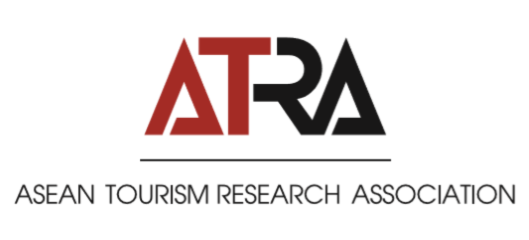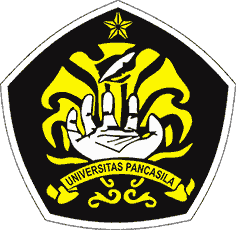ADVANCING TOURISM THROUGH CULTURE AND INNOVATION BASED EVENTS
Abstract views: 209 | pdf downloads: 164
Abstract
Event tourism plays a crucial role in promoting cultural preservation, economic growth, and community development. The case study of Pasar Kangen exemplifies how an event-based approach can revitalize traditional markets, foster cultural appreciation, and contribute to the local economy. Overall, this research offers insights into new perspectives on ceremonial tourism at Pasar Kangen, providing a unique ambiance during the event. This study employs a descriptive qualitative research method. The findings of this research are as follows: first, event tourism has emerged as a new model in local community development. Second, Pasar Kangen can be considered a new destination within the tourism concept. Pasar Kangen successfully combines culture, cuisine, attractions, and nostalgic experiences into a cohesive whole that attracts visitors, both local and international. Market-based event tourism like Pasar Kangen offers an alternative in developing the tourism sector while preserving local values and leveraging the uniqueness of local cultural traditions.
References
Beras, P., Basis, S., Usaha, P., & Masyarakat, T. (1999). Pasar Beras Sebagai Basis Pengembangan Usaha Tani Masyarakat Pedesaan (Suparmo dkk.). 138–154.
Bogdan, R. (1992). Pengantar Metode Penelitian Kualitatif. Usaha Nasional.
Chandra, T., Rakhmanto, A., Syamsudin, B., Marsongko, E. P., & Suhendar, T. (2023). Studi Analisis Pemasaran Wisata Kuliner Kota Yogyakarta. Altasia Jurnal Pariwisata Indonesia, 5(1), 55. https://doi.org/10.37253/altasia.v5i1.7260
Date, P. (2019). Environmental gradients determine the potential for ecosystem engineering effects. https://doi.org/10.1111/oik.05768
Ding, N., Mi, X., & Zhao, L. (2019). Research on Sustainable Development of Event Tourism under Environment-friendly growing path. IOP Conference Series: Earth and Environmental Science, 300(3). https://doi.org/10.1088/1755-1315/300/3/032037
Echeta, D. (2022). Impact of Event Tourism on Lagos Residents Image. Journal of Social Responsibility,Tourism and Hospitality, 2(23), 32–41. https://doi.org/10.55529/jsrth.23.32.41
Fauzi, A., Satyawan, I. A., & Nurhaeni, I. D. A. (2022). Jogjavaganza event as one of the communication media to promote Yogyakarta City tourism. International Journal of Multicultural and Multireligious Understanding, 9(1), 498–506. https://doi.org/dx.doi.org/10.18415/ijmmu.v9i1.3412
Getz, D. (2008). Event tourism : Definition , evolution , and research. Tourism Management, 29, 403–428. https://doi.org/10.1016/j.tourman.2007.07.017
Getz, D., & Page, S. J. (2016). Progress and prospects for event tourism research. Tourism Management, 52, 593–631. https://doi.org/10.1016/j.tourman.2015.03.007
Getz, D., Svensson, B., & Gunnervall, A. (2012). Hallmark Events : Definition , Goals and Planning Process. International Journal of Event Management Research Volume, 7(1), 47–67.
Grzinic, J., & Vojnovic, N. (2014). Sustainable Event Tourism : Case Study City Of Pula , Croatia. 5(1), 53–65.
Hadif, A., & Jamal, A. (2018). Dampak Pasar Modern (Alfamart) Terhadap Usaha Pasar Tradisional Di Kabupaten Aceh Besar. Jurnal Ilmiah Mahasiswa (JIM), 3(1), 59–67.
Ivanova, P. (2021). Event tourism development in bulgaria: Key factors and main goals. Ikonomicheski Izsledvania, 30(1), 168–191.
Kim, J. (2011). Patterns and Trends in Event Tourism Study Topics Over 30 Years. Revista de Química, 9(1), 1–14. http://ctic-cita.es/fileadmin/redactores/Explora/Tecnica_valoriz_ANICE.pdf%0Ahttp://bvssan.incap.org.gt/local/file/T469.pdf%0Ahttps://dspace.ups.edu.ec/bitstream/123456789/1586/15/UPS-CT002019.pdf%0Ahttp://www.bdigital.unal.edu.co/6259/%0Ahttp://onlinelib
Kireeva, Y. A. (2020). The current state of event tourism in russia. Journal Tourism Studies & Practices, 1–11.
Kusumawati, A., Pangestuti, E., & Supriono, S. (2022). The antecedent of event attachment influence on tourism sustainability: the case of Jember Fashion Carnaval, Indonesia. International Journal of Tourism Cities, 8(4), 1000-1018. https://doi.org/10.1108/IJTC-09-2021-0197
Maguire, K., & Hanrahan, J. (2013). Sustainable event management in Ireland: A local authority perspective. Tourism and Hospitality Research in …. http://research.thea.ie/handle/20.500.12065/506%0Ahttps://research.thea.ie/bitstream/handle/20.500.12065/506/Sustainable Event Mgmt in Ireland.pdf?sequence=1
Marris, T. (1987). The Role and impact of mega‐events and attractions on regional and national tourism development resolutions. Tourism Review, 42, 3–12. https://doi.org/10.1108/EB057975
Moleong, L. J. (2018). Metode Penelitian Kualitatif. PT Remaja Rosdakarya.
Munro, I., & Jordan, S. (2013). “Living Space” at the Edinburgh Festival Fringe: Spatial tactics and the politics of smooth space. Human Relations, 66(11), 1497–1525. https://doi.org/10.1177/0018726713480411
Nurhabib, B. M. (2018). The Impact of the Yogyakarta Idiosyncrasy Fund on the Tourism Sector in Yogyakarta (Issue Did). Universitas Gadjah Mada.
Nursalam, C., & Syahputra, E. (2023). Potensi Tradisi Grebeg Dalam Meningkatkan Kunjungan Wisatawan Daerah Istimewa Yogyakarta. Jurnal Ilmiah Wahana Pendidikan, 9(April), 89–95. https://doi.org//10.5281/zenodo
Nursyamsu, L., & Marcillia, S. (2021). Kualitas Bangunan Atraksi Wisata Pada Daya Tarik Wisata Budaya Di Kotagede , Yogyakarta. Jurnal Parwisata Dan Budaya Cakra Wisata, 22(2), 11–23.
Page, S., & Connell, J. (2020). The Routledge Handbook of Events. Routledge.
Petrevska, B., & Jakovlev, Z. (2015). Does Event Tourism Prevent Seasonality ? Assessment of the East Region of Macedonia. Ciência e Técnica Vitivinícola, 30.
Puspita, N., Amelia, R., & Rodjak, R. J. (2021). Development Strategy of Music Tourism: Ubud Village Jazz Festival as Community-Based Event in Ubud, Bali. Journal of Tourism Destination and Attraction, 9(1), 27–36. https://doi.org/10.35814/tourism.v8i2.1886
Quinn, B. (2005). Arts festivals and the city. Urban Studies, 42(5–6), 927–943. https://doi.org/10.1080/00420980500107250
Rosilawati, Y., & Mulawarman, K. (2019). Partisipasi Masyarakat Terhadap Pembangunan Pariwisata Berbasis Budaya Di Yogyakarta (Studi Kasus Di Kotagede, Yogyakarta). Jurnal Ilmu Komunikasi, 1(2), 9–25. https://doi.org/doi.org/10.36269/ire.v1i2.542
Susanto, B., Filiana, A., & Oentoro, K. (2022). Pengembangan Situs Badan Promosi Pariwisata Kota Yogyakarta. Kumawula : Jurnal Pengabdian Kepada Masyarakat, 5(2), 268–277. https://doi.org/https://doi.org/10.24198
Thu, T. T., & Toan, D. T. (2022). Sport Event Tourism and Sustainable Development Perspectives In Da Nang City. Journal On Tourism & Sustainability, 6(1), 76–86. https://doi.org/10.5281/zenodo.7649820
Widyastuti, D., Dharmesti, T. R., Widyastuti, D., & Dharmesti, T. R. (2019). The Attractiveness of Krebet Tourism Village: Applying Components of Tourism Analysis. Social Sciences and Humanities, 4. https://doi.org/https://doi.org/10.29037/digitalpress.44354
Zhukov, V. A. (2018). The development of tourism in Russia based on the event - events. UPRAVLENIE / MANAGEMENT (Russia), 6(4), 16–20. https://doi.org/10.26425/2309-3633-2018-4-16-20
Zlatanov, S. (2017). The role of events in tourism development. BizInfo Journal, 5(51). https://doi.org/10.5937/BIZINFO1502083O























